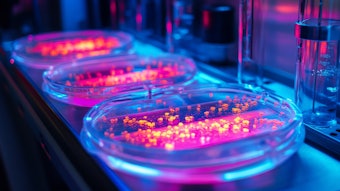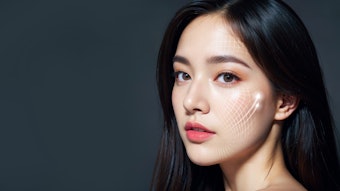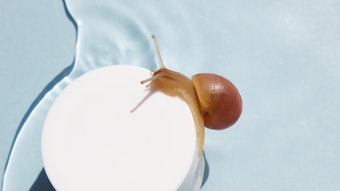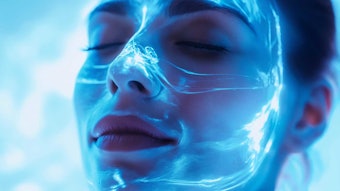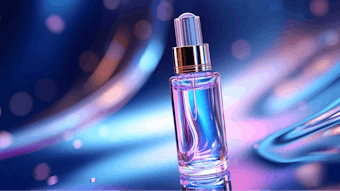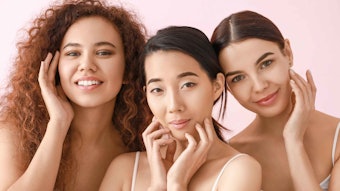Alopecia or hair loss affects individuals globally, and although both men and women are affected by it, it is more commonly seen in men. In fact, according to James Murphy, CEO and general manager of Lifes2Good Natural Healthcare Inc., male pattern baldness affects nearly 65% of men.
Mechanisms of Action
Permanent hair loss in the form of male-pattern baldness has been attributed to high testosterone levels.1 “It has been found that the androgen dihydrotestosterone (DHT) plays a large part in the inhibition of hair growth in men,” explained Murphy. DHT is a biologically active metabolite of testosterone that is formed in the hair follicles by the enzyme 5α-reductase via reduction of the 4,5 double-bond.1 DHT has been found to shorten the growth or anagen phase of the hair cycle. Thus, one way to prevent hair loss in men is to inhibit 5α-reductase, thereby reducing the production of DHT.
Men seeking treatment for pattern baldness, a form of androgenic alopecia, often are confronted with both topical preparations and oral supplements. Finasteride is a synthetic anti-androgen taken orally to help inhibit 5α-reductase. It is approved by the US Food and Drug Administration to treat hair loss.2 Minoxidil is an approved topical treatment for hair loss that dilates the blood vessels, stimulating hair growth. “If the hair bulb is in place, finasteride and minoxidil get the hair to grow,” said Murphy. Both treatments are synthetic and can present some side effects.
Alternatively, the supplement from Lifes2Good Natural Healthcare Inc. aims to address thinning hair with nutrition. Murphy believes his company’s oral food supplement addresses hair loss both naturally and effectively-via fish.
Ingesting Hair Health
The company combined several natural actives including a marine protein extract, horsetail extract, flaxseed extract and cherry extract in its supplement to address not only androgenic alopecia but also the condition of hair.
“Our main ingredient, [marine protein extract], was discovered by researchers at the University of Helsinki who were interested in the impressive skin, hair and nail health of Eskimos.1 [Eskimos] generally do not go grey or lose their hair,” explained Murphy. Through a series of studies, researchers determined the Eskimo diet, rich in fish, led to the quality and quantity of their hair. In addition, the fishes’ silica diet played a role in the shininess of their hair. “The combination of the fish extracts, silica and vitamin C help to prevent the hair from undergoing mineralization,” said Murphy, which results in hair loss.
Product developers thus chose deep sea fish, similar to those eaten by the Eskimos, from which they extracted protein and incorporated it into the product. “The complex is proven to grow existing hair by directing much-needed polysaccharides (proteins) to the hair follicle,” said Muphy, who added that the marine protein extract prevents hair from drying out and adds moisture to the hair shaft.
In addition to marine protein, the supplement also contains Malphiglia glabra (acerola) cherry extract. “Acerola is included for its high vitamin C content. Vitamin C helps to strengthen hair and nails, and protects them from environmental aggressors,” said Murphy. Also included to address thinning hair are zinc gluconate and Linum usitassimum (flax) seed extract. “[Flaxseed] is one of the few natural ingredients that has been documented to help DHT and promote hair growth,” stated Murphy, who finds that zinc gluconate does the same. Flaxseed, however, is only effective on male-pattern baldness based on its relationship with DHT.
Equisetum arvense (horsetail) extract is included in the product to add shine to hair. Horsetail extract is a natural form of silicon and imparts luster to hair.
Prolonging Hair Life
The company initially developed the supplement to address hair loss from the inside out. To complement this approach, topical products were developed as well, and include a shampoo, conditioner and scalp lotion. Currently, topical products in the United States do not contain the marine extract; however, the European products do, and Murphy plans to add the marine protein to the shampoo and scalp lotion in the United States. “The topical products address the condition of the hair and not hair loss,” said Murphy, who believes that treating the condition of hair is essential to prolonging its life.
References
1. A Lassus and E Eskelinen, A comparitive study of a new food supplement, Viviscal, with fish extract for the treatment of hereditary androgenic alopecia in young males, J Intl Med Res 20 445-453 (1992)
2. Hair loss, www.mayoclinic.com/health/hair-loss/DS00278 (accessed Nov 18, 2008)
